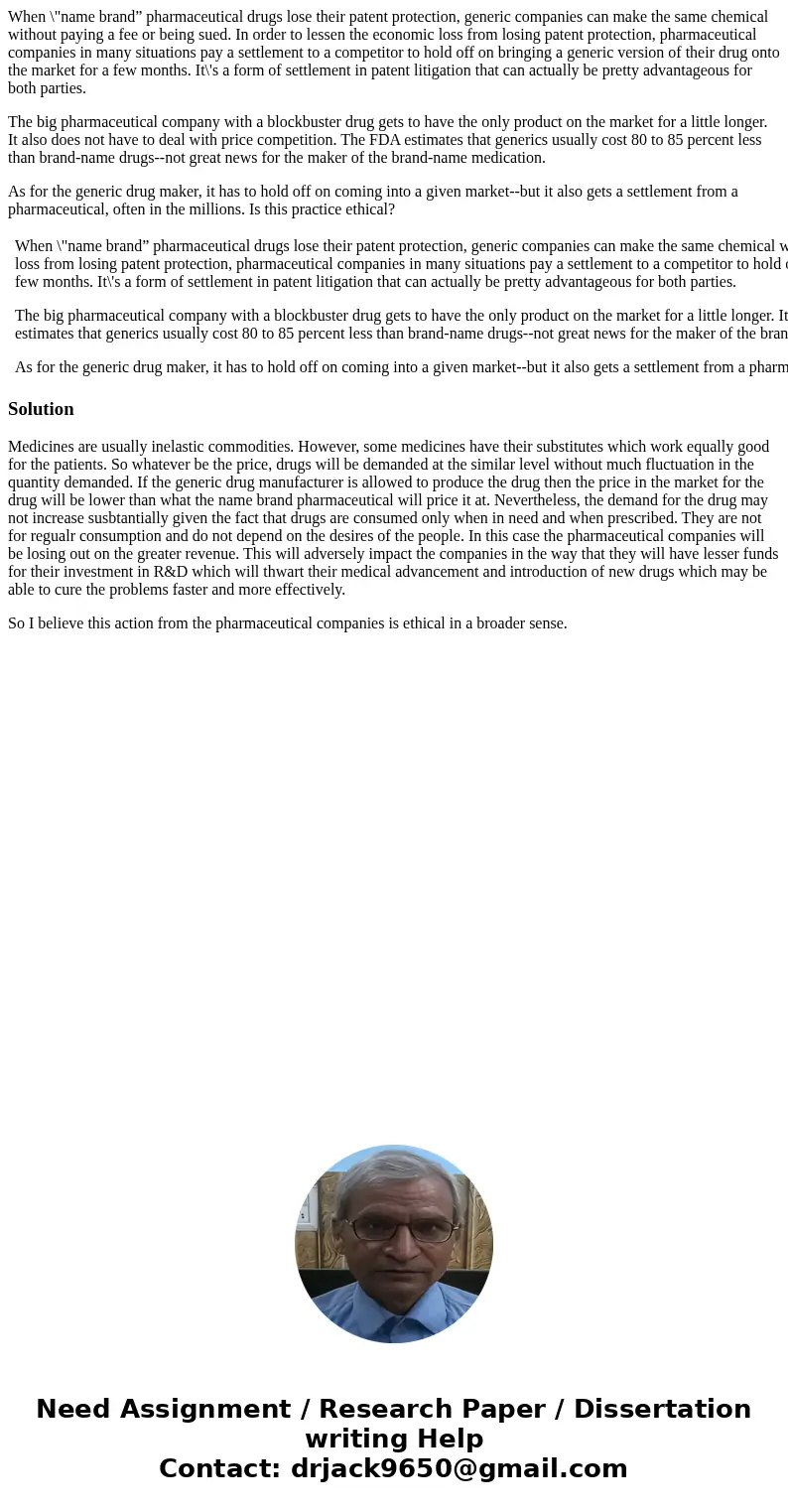When name brand pharmaceutical drugs lose their patent prote
When \"name brand” pharmaceutical drugs lose their patent protection, generic companies can make the same chemical without paying a fee or being sued. In order to lessen the economic loss from losing patent protection, pharmaceutical companies in many situations pay a settlement to a competitor to hold off on bringing a generic version of their drug onto the market for a few months. It\'s a form of settlement in patent litigation that can actually be pretty advantageous for both parties.
The big pharmaceutical company with a blockbuster drug gets to have the only product on the market for a little longer. It also does not have to deal with price competition. The FDA estimates that generics usually cost 80 to 85 percent less than brand-name drugs--not great news for the maker of the brand-name medication.
As for the generic drug maker, it has to hold off on coming into a given market--but it also gets a settlement from a pharmaceutical, often in the millions. Is this practice ethical?
| When \"name brand” pharmaceutical drugs lose their patent protection, generic companies can make the same chemical without paying a fee or being sued. In order to lessen the economic loss from losing patent protection, pharmaceutical companies in many situations pay a settlement to a competitor to hold off on bringing a generic version of their drug onto the market for a few months. It\'s a form of settlement in patent litigation that can actually be pretty advantageous for both parties. The big pharmaceutical company with a blockbuster drug gets to have the only product on the market for a little longer. It also does not have to deal with price competition. The FDA estimates that generics usually cost 80 to 85 percent less than brand-name drugs--not great news for the maker of the brand-name medication. As for the generic drug maker, it has to hold off on coming into a given market--but it also gets a settlement from a pharmaceutical, often in the millions. Is this practice ethical? |
Solution
Medicines are usually inelastic commodities. However, some medicines have their substitutes which work equally good for the patients. So whatever be the price, drugs will be demanded at the similar level without much fluctuation in the quantity demanded. If the generic drug manufacturer is allowed to produce the drug then the price in the market for the drug will be lower than what the name brand pharmaceutical will price it at. Nevertheless, the demand for the drug may not increase susbtantially given the fact that drugs are consumed only when in need and when prescribed. They are not for regualr consumption and do not depend on the desires of the people. In this case the pharmaceutical companies will be losing out on the greater revenue. This will adversely impact the companies in the way that they will have lesser funds for their investment in R&D which will thwart their medical advancement and introduction of new drugs which may be able to cure the problems faster and more effectively.
So I believe this action from the pharmaceutical companies is ethical in a broader sense.

 Homework Sourse
Homework Sourse